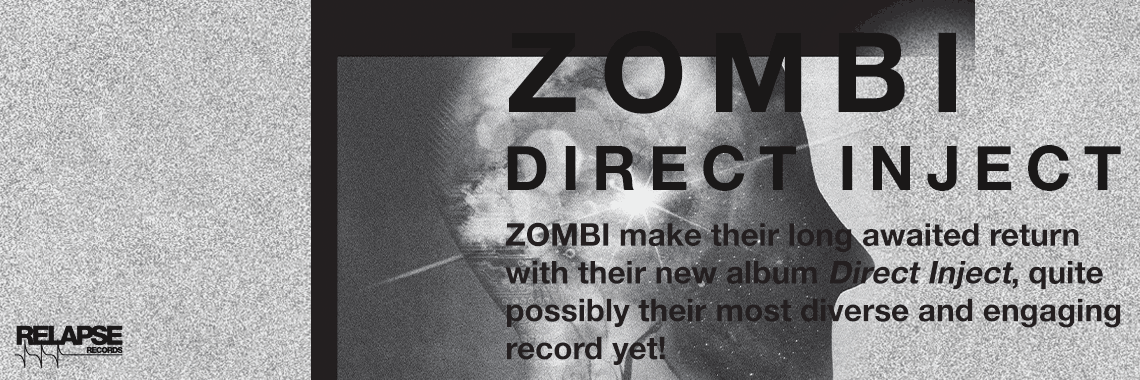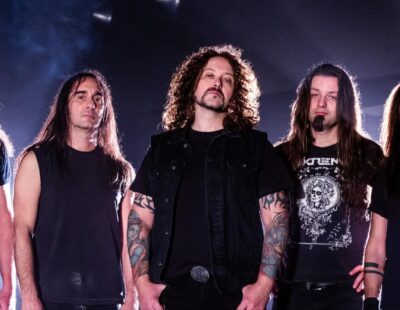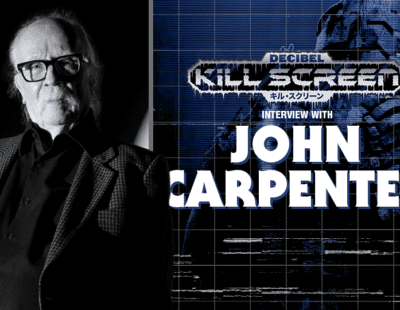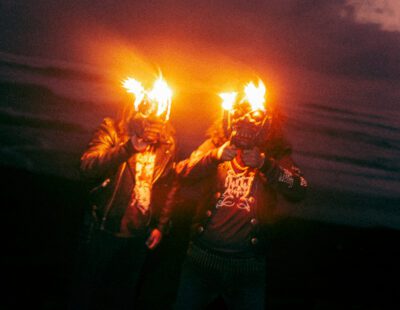
The four-armed robot stabs Joseph Grillo between the ribs then again in the front, the side, the back.
His lung, collapsed.
His larynx — those cartilage plates lashed together by muscle fibers which brought forth such powerful melodies and couplets in stellar bands such as Garrison, Stricken for Catherine, Gay for Johnny Depp, and I Hate Our Freedom — paralyzed.
This robot is here to help, if you can believe it.
A few weeks previous during a routine heart scan a mass had been discovered between the heart and lung.
Grillo has two young kids, a wife, and a calling. It’s a brutal recovery, but the cancer was caught early. No chemo, no radiation. He would continue to be there for the wife and sons — the most important thing, obviously. But the calling? It remained up in the air for eight long, disorienting months. When he read books to his kids Grillo sounded, by his own estimation, like “a cross between Batman and Tom Waits.”
And then one day he’s working in his shop. REM’s Green comes on the stereo. First, almost without realizing it, he’s hitting the notes. Next, the tears of joy are rolling down.
So what next?
“Adversity is like a strong wind,” Arthur Golden writes in Memoirs of a Geisha. “It tears away from us all but the things that cannot be torn, so that we see ourselves as we really are.”
After six years of working and child rearing — plus one existential medical crisis — Joseph Grillo was ready to return to music; to make that post-torn away record. A profound and personal statement rendered amidst a profound and personal time. Grillo began writing music in his head while putting his children to bed and then brought in the straight legend/former bandmate Drew Thomas (Into Another/Youth of Today/BOLD/God Fires Man) into the mix.
The Judas Knife was born.
The subsequent Kurt Ballou-produced full-length Death is the Thing with Feathers — preorder here — twisty, beautiful, soul-stirring collection that is both delightfully enigmatic and immediately affecting. (The descriptor “Shellac meets Depeche Mode” is weirdly/wonderfully apropos…)
“I was very lucky with my medical issue — they caught it so early and took care of it so quickly I can’t even really look back on the experience badly,” Grillo tells Decibel. “But you do you find yourself wondering, ‘If I continue to be lucky, how many years have I got left? And what kind of art do I want to make in that time?’ The Judas Knife is my answer. This band is my baby; it’s the music I really want to hear in the world. If people like it, cool. If they don’t? That’s fine. I have no intention of making a living off of music. I do other things for that. When it comes to music, I’m not about making money. I’m about making art.”
We’ve got an exclusive stream of the track “Warm Hands, Cold Blood” below.
The idea was, partially, to marry the rock sensibility he and Thomas have spent decades honing to the undiluted life force explored by T. Rex, Funkadelic, Miles Davis. And also to tap into the eclectic, expansive scene of Grillo’s youth.
“You’d be at a coffee shop with one friend in a Dinosaur Jr shirt and another in a Smiths shirt talking about the Stone Roses then we’d all get in the car and listen to Ministry,” Grillo tells Decibel. “Those are all diametrically opposed sounding bands, yeah, but it was all left of the dial, all different. That was what mattered to us, not genre distinctions… Whenever Bane would play [Worcester, Massachusetts venue] The Space [in the 90s] we’d make a point to play Superchunk’s Foolish on the PA afterwards because it’s [Bane frontman Aaron] Bedard’s favorite band and one of my favorite bands. And you’d just see endless rows of hardcore kids all smiling. It was a very charming time.”
In drummer Thomas and producer Ballou, Grillo found perfect collaborators. The later he had known since high school, developing a shorthand vocabulary for sound and songwriting. The former, is, he notes, “the coolest fucking human being on the planet.”
“Drew is a drummer who really understands and elevates every song he plays on,” Grillo says. “He’s a guy who played on Break Down the Walls at, like, fourteen. What were you doing at fourteen? I was doing musical theater and was basically a loser!
“The older we get, the more our peer group dwindles,” he continues. “Some people quit music and some people die and some people just go off to do other things. The number of people who remain to play with music is lower, but everyone left has been through the wringer. We’ve all been touring for decades. We know what it’s like to play squats. We know what it’s like to play stadiums. We know what it’s like to not eat for awhile. W know what it’s like to record on five hundred dollar budget. We know what it’s like to record on a $50,000 budget. You can’t put a price on that experience. You can’t imitate it. And we just have a tremendous amount of trust in each other as a result, which comes through in the music, I think.”
It’s true: The Judas Knife feels like a very liberated record by consummate craftsmen.
“I didn’t care about genre, I didn’t care about expectations,” Grillo confirms. “I know how precious time is now. I want to make the most of it. Sometimes that means looking at all these labels and boxes and saying, ‘Fuck it, we’re going to go our own way.'”





